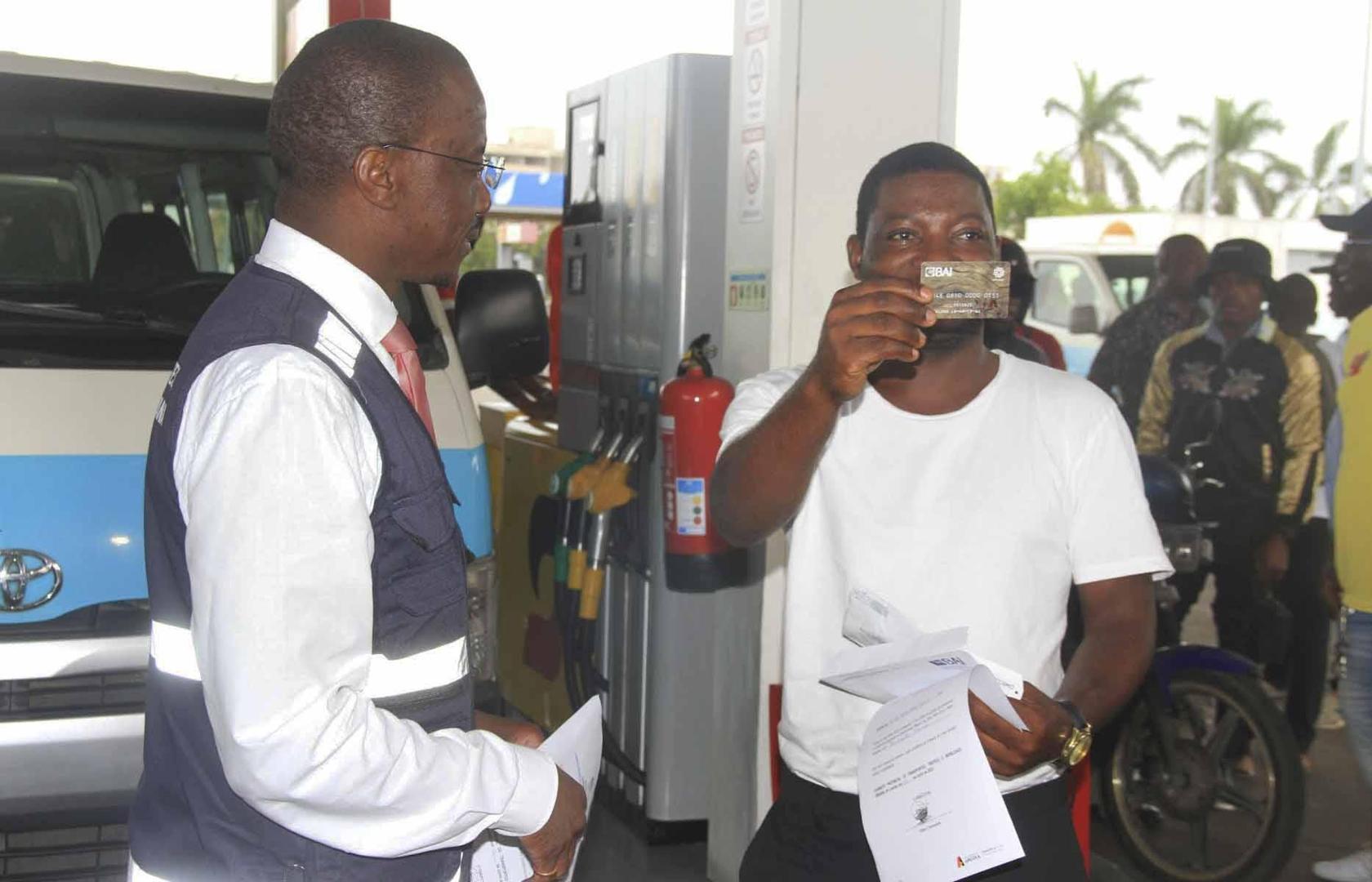Africa-Press – Angola. 1,296 gasoline subsidy cards began this Saturday to be delivered to taxi drivers and motorcycle taxi drivers in the municipality of Mbanza Kongo, northern Zaire province, as part of the program for the gradual withdrawal of fuel subsidies, set up by the Angolan government .
The symbolic delivery ceremony of the first cards to beneficiaries took place at one of the city’s fuel pumps and was supervised by the provincial governor, Adriano Mendes de Carvalho.
In all, Zaire expects to receive more than five thousand gasoline subsidy cards that will be distributed in the six municipalities that make up the province.
On the occasion, the governor asked those contemplated to behave with dignity in the exercise of their activity, avoiding speculation on the price of a taxi ride, which, in recent days, has risen from 200 to 300 kwanzas.
He appealed to beneficiaries to keep the assigned cards, stressing that any irregularities that may eventually arise will be resolved by the competent authorities.
Some motorcycle taxi drivers who spoke, were satisfied with the allocation of gasoline cards and promise to return to the previous taxi fare, set at 200 kwanzas.
For motorcycle taxi driver Francisco da Mata, with the arrival of fuel cards, professionals in the class are once again purchasing gasoline at a price of 160 kwanzas per litre.
“It is a relief for us, because since the rise in the price of gasoline we have been buying 300 kwnzas per liter at the pumps”, he said.
In turn, Fonseca António, a taxi driver, praised the Executive’s initiative, stating that the increase in the price of a liter of gasoline will also contribute to improving the living conditions of the population.
According to the interlocutor, this measure may also discourage fuel smuggling into the neighboring Democratic Republic of Congo (DRC).
The delivery of fuel cards will continue in the next few days in the municipalities of Soyo, Nzeto, Cuimba, Tomboco and Nóqui.
The act was witnessed by members of the provincial government and guests.
For More News And Analysis About Angola Follow Africa-Press






